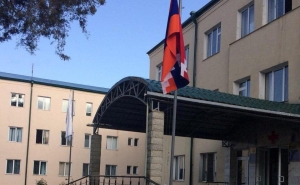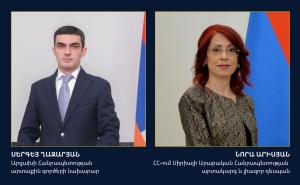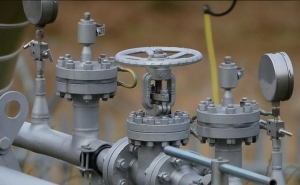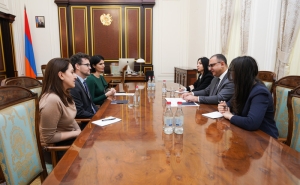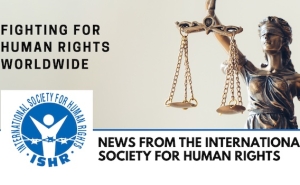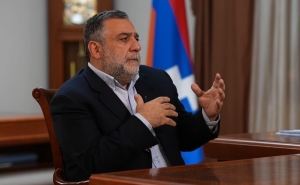 NKR Foreign Policy in 2016: New Mechanisms of Cooperation Are Needed
NKR Foreign Policy in 2016: New Mechanisms of Cooperation Are Needed
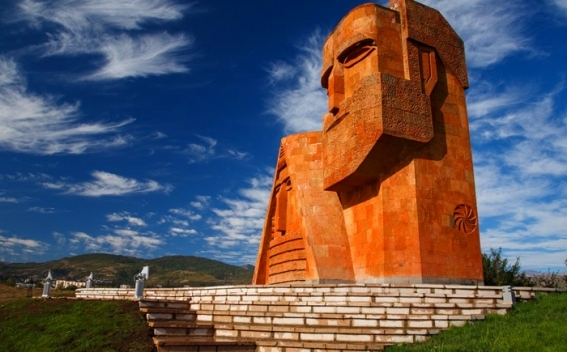
Establishing active foreign relations and international connections have been one of the priority directions of Nagorno-Karabakh Republic’s work. Only due to active foreign policy Armenian Second Republic can raise its popularity on various international platforms and make its position more perceivable to the external world.
It is important to state that the established foreign relations also give NKR additional security guarantees. In case of necessity NKR partners abroad become the first ones to voice threats facing the Artsakh people.
In the context of the consistent development and activation of the foreign policy it is important from time to time to summarize the undertaken steps to reveal exiting drawbacks and to outline future initiatives. Below we will try to summarize the steps undertaken in 2016 categorizing them by the main directions:
- Foreign delegations, who visited NKR
- Foreign officials, who visited NKR and events organized abroad,
- Political entities that recognized NKR independence
Foreign Delegations, Who Visited NKR
In 2016 two dozens of delegations visited NKR. During their visits the members of the delegations had high level meetings with NKR President, Foreign Minister, President of National Assembly and other high level officials.
Among delegations that visited NKR are:
1. Delegations from international organizations (such as representatives from OSCE, EU CoE): via communication with them as well as via establishing bilateral connections, the NKR tried to make its voice heard in those institutions. In the future to further increase NKR popularity abroad, it will be necessary not only to expand existing connections. For example, by consistent initiatives NKR can strive and get an opportunity to participate in the discussions concerning it. This is quite possible when one takes into consideration the existing international experience.
2. Deputies from parliaments of different countries (such as deputies from Armenia, Germany, France, Bulgaria, Greece, Latvia): in the framework of the visits the discussions mainly concerned the development and deepening of the connections between parliaments, social and political circles.
In the context of parliamentary diplomacy the cooperation between parties is also very important. The visit of the delegation of Die Linke German Party as well as of the Vice President and Co-Director of European Free Alliance was important from this perspective. In the future it is important to continue cooperation not only on the level of parliamentarians but also on the level of political parties.
3. Representatives of local authorities of different countries (such as a group of Flemish parliamentarians of the Kingdom of Belgium, parliamentarians of the Brussels Flemish Parliament): during the meetings on this level deepening of bilateral connections and the issues on the cooperation in different spheres (economic, political, humanitarian etc.) were discussed, number of agreements were reached.
Building on the existing achievements, in the future it is necessary to further deepen connections on the level of local governing authorities. Both extending spheres of cooperation and developing working agendas with different political entities can further deepen cooperation between them. The interaction with those political entities will be productive if the agendas developed with each of them take into consideration the peculiarities of those political entities.
II. Visits of NKR Officials and Events Organized Abroad
It is important to note that the foreign visits of the NKR officials were not limited to only meeting with different officials. They also delivered lectures, participated in round-table discussions (for example, on September 27 in the framework of his visit to Belgium, NKR Foreign Minister Karen Mirzoyan, as a main speaker, participated in the round-table discussion entitled "Nagorno Karabakh Republic: 25 years of state-building in a volatile region" at the premises of the European Parliament).
Besides in 2016 around a dozen of events have been organized, during which NKR representatives abroad delivered lectures. Among those events are the lectures organized in Thomas Jefferson School of Law, University of California, Berkeley, The Washington Institute of World Politics, press conference in Swiss press club etc.
The cooperation with the universities of different countries, scientific circles, media and civil society representatives can also contribute to the further development and more active foreign policy of NKR. To ensure progress in this direction, universities, media agencies, CSOs in NKR can establish new connections and cooperate with their partners in different countries.
III. Political Entities Who Recognized NKR Independence
Summarizing NKR foreign policy in 2016, we, of course, cannot forget the regions that recognized NKR independence this year and the new sister cities. On March 3, the House of Representatives of the US. State of Georgia adopted a resolution H.R. 1580 entitled "Honoring and Recognizing the Nagorno-Karabakh Republic," while on March 29, the House of Representatives of the U.S. State of Hawaii adopted a homonymous resolution H.R. 167.
On April 20, Council of City and County of Honolulu, state of Hawaii, adopted a resolution 16-78, CD1, encouraging and supporting the Nagorno-Karabakh Republic’s continuing efforts to guarantee its citizens those rights inherent in a free and independent society, On February 3, the City Council of the Brazilian city of Franco da Rocha unanimously adopted a decision on declaring Stepanakert and Franco da Rocha twin cities.
It has been stated for many times that the recognition of NKR by various political entities cannot end in itself. Thus, the NKR foreign policy in this direction should be more coordinated. This can be achieved by developing separate cooperation agendas with each of those entities.
Concluding we can state that in the all directions mentioned there has been some activity in 2016, however it cannot be considered sufficient or satisfactory To raise the productivity of the initiatives in this direction those initiatives should become more coordinated based on concrete mechanism of cooperation. To this can contribute new platforms of cooperation between political parties, or the above mentioned short-term and long-term agendas of cooperation with those political entities.
Other materials on this subject
- Russian forces have clearly failed in their duties: senators press Biden Administration to break Azerbaijan’s blockade The United States cannot stand aside while the Aliyev regime callously threatens the lives of Nagorno-Karabakh’s citizens, and must hold Azerbaijan to account for blocking a civilian population’s access...
- US calls for the full restoration of free movement through the Lachin Corridor "We remain concerned about impeded access to the Lachin Corridor and the humanitarian implications of this situation. This sets back the peace process and undermines international confidence. We call for...
- Azerbaijani forces violate the ceasefire in Artsakh The ceasefire violation was reported to the command of the Russian peacekeeping troops.
- Azerbaijani units violate ceasefire in several directions, Artsakh’s Defense Ministry says The Armenian side has no losses. The incidents of ceasefire violations were reported to the command of the Russian peacekeeping troops.
- Russian Diplomat Reassures Armenians Over Corridor In Karabakh "The parties are in direct contact, and I assure you that the peacekeepers will not move a single centimeter until there is a new corridor," Seleznyov said.
Other materials on this subject
- Council of the French Department of Bouches-du-Rhône adopted a Declaration in support of Artsakh The Bouches-du-Rhône Department also decided to participate in the provision of assistance to Artsakh by providing 50,000 euros in humanitarian aid through the Coordinating Council of Armenian Organizations...
- President of Artsakh Met a Group of Members of the Belgian Francophone Circles The Head of the State noted with satisfaction that Artsakh's relations with the Francophone community and structures of Belgium are developing dynamically voicing hope that they will further on strengthen...
- The Working Visit of Artsakh Foreign Minister Masis Mayilian to the USA has Started The Foreign Minister answered the questions of the participants of the meeting.
- The Statements of the Foreign Ministries of Georgia and Ukraine Constitute an Interference in the Internal Affairs of the Artsakh Republic. Artsakh MFA Statements by the Foreign Ministries of Georgia and Ukraine also contain provisions that distort the essence of the Azerbaijani-Karabakh conflict with the aim to reduce it to a territorial dispute and...
- "Artsakh-France" Friendship Circle Meeting Issues related to the future programs of the friendship circle and the prospects for cooperation have been discussed.
-
 17:08
17:08The regular session of the Anti-corruption Policy Council takes place in Jermuk
-
 15:05
15:05The Prime Minister sends congratulatory messages to the supreme leader of Iran and the President of Iran
-
 11:11
11:11Armenia sends earthquake aid to Turkey
-
 10:43
10:43Commemoration of the Pontiff St. Sahak Partev
-
 09:16
09:16Some roads are closed and difficult to pass in Armenia
-
 19:55
19:55Phone conversation of the Foreign Minister of Armenia with the U.S. Assistant Secretary of State for European and Eurasian Affairs
-
 18:30
18:30Prime Minister Pashinyan and President Khachaturyan meet
-
 18:20
18:20Ararat Mirzoyan with Co-Chairman of the OSCE Minsk Group of France Brice Roquefeuil
-
 17:01
17:01Humans could land on Mars within 10 years, Musk predicts
-
 16:45
16:45France, US urge 'immediate' end to Nagorno Karabakh blockade
-
 16:01
16:01Blockaded Nagorno Karabakh launches fundraiser to support quake-hit Syria
-
 15:59
15:59Earthquake death toll in Turkey rises to 18,342
-
 15:43
15:43Ararat Mirzoyan Held a Telephone Conversation with Sergey Lavrov
-
 15:06
15:06French president rules out fighter jet supplies to Ukraine in near future
-
 14:47
14:475 Day Weather Forecast in Armenia
-
 14:44
14:44President Vahagn Khachaturyan wrote a note in the book of condolences opened in the Embassy of Syria in Armenia
-
 14:20
14:20Azerbaijan’s provocations impede establishment of peace and stability – Armenian FM tells Russian Co-Chair of OSCE MG
-
 12:57
12:57France representation to OSCE: Paris calls on Azerbaijan to restore freedom of movement through Lachin corridor
-
 11:40
11:40Command of Kosovo forces highly appreciated preparation of Armenian peacekeepers
-
 10:16
10:16The United States withdrew from sanctions against Syria for six months the provision of assistance after the earthquake
day
week
month
Humidity: %
Wind: km/h



